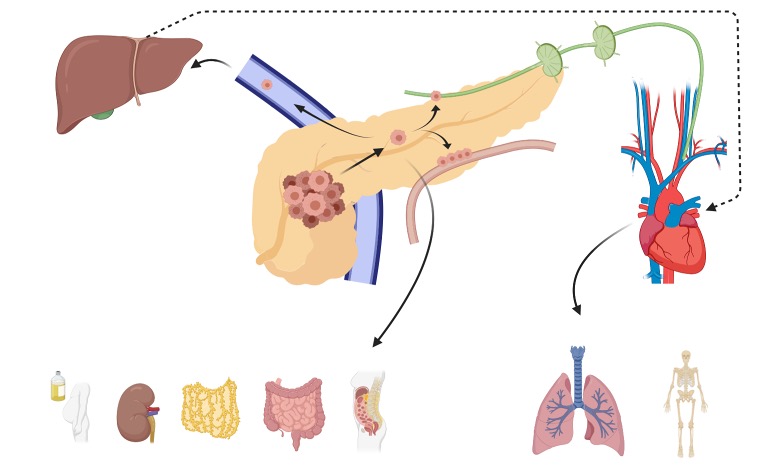Understanding the spread of a deadly malignancy

Welcome to the Worth Lab! Please take some time to get to know our team. Read about our work, and what we are passionate about. We are a small lab but have expertise in a number of techniques and are happy to collaborate! And feel free to reach out with any questions or comments. Thanks for visiting our site.
Pancreatic cancer is a devastating malignancy that very often is not detected until it has spread throughout the body. For any hope of a cure, patients must undergo chemotherapy and surgical removal of the entire tumor. Unfortunately, only about 1 in 5 patients who present with pancreatic cancer are candidates for surgery.
Pancreatic surgery--even in the best of cases--is fraught with complications, due to the complexity of the surgery, and the role the pancreas plays in digestion. For patients able to undergo removal of their tumor, 20-30% will experience recurrence of their tumor in the liver within six months.
This "rapid recurrence" after surgery is demoralizing and a bad sign in terms of a patient's overall prognosis, and is poorly understood. Our lab's goal is to improve the understanding of this phenomenon using our clinical expertise in the care of pancreatic surgery patients, translating this into lab-based models.